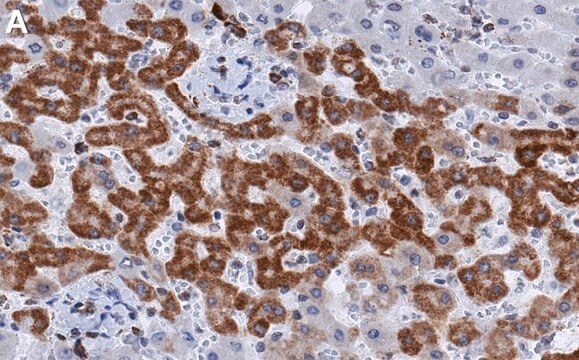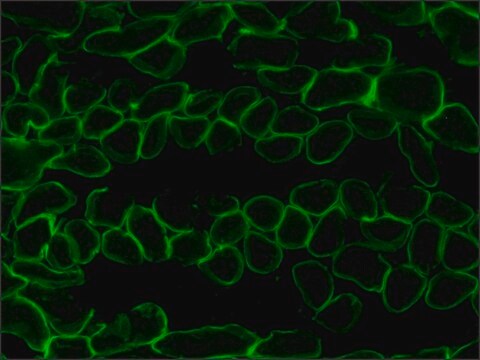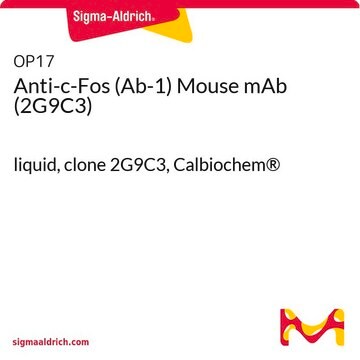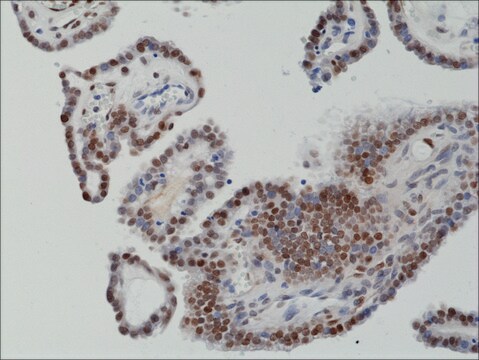MABE329
Anti-c-Fos Antibody
mouse monoclonal, 2G9C3
Synonym(s):
Proto-oncogene c-Fos, Cellular oncogene fos, G0/G1 switch regulatory protein 7
About This Item
Recommended Products
Product Name
Anti-c-Fos Antibody, clone 2G9C3, clone 2G9C3, from mouse
biological source
mouse
Quality Level
antibody form
purified antibody
antibody product type
primary antibodies
clone
2G9C3, monoclonal
species reactivity
human
technique(s)
immunocytochemistry: suitable
western blot: suitable
isotype
IgG1κ
NCBI accession no.
UniProt accession no.
shipped in
wet ice
target post-translational modification
unmodified
Gene Information
human ... FOS(2353)
General description
Specificity
Immunogen
Application
Epigenetics & Nuclear Function
Transcription Factors
Quality
Western Blot Analysis: 0.5 µg/mL of this antibody detected c-Fos on 10 µg of HeLa cell lysate.
Target description
Physical form
Storage and Stability
Analysis Note
HeLa cell lysate
Other Notes
Disclaimer
Not finding the right product?
Try our Product Selector Tool.
recommended
Storage Class
12 - Non Combustible Liquids
wgk_germany
WGK 1
flash_point_f
Not applicable
flash_point_c
Not applicable
Certificates of Analysis (COA)
Search for Certificates of Analysis (COA) by entering the products Lot/Batch Number. Lot and Batch Numbers can be found on a product’s label following the words ‘Lot’ or ‘Batch’.
Already Own This Product?
Find documentation for the products that you have recently purchased in the Document Library.
Our team of scientists has experience in all areas of research including Life Science, Material Science, Chemical Synthesis, Chromatography, Analytical and many others.
Contact Technical Service








